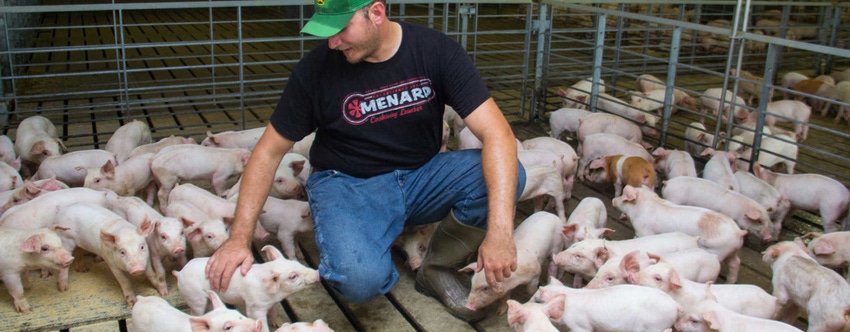Over the last 50 years, U.S. pig farmers have reduced their environmental impact by using 75.9% less land, 25.1% less water and 7% less energy.
October 28, 2020

October marks National Pork Month across the United States and Christensen Farms is recognizing the important and noble role all pork producers play in responsibly and sustainably producing safe, nutritious and delicious pork for the people across this great nation, and around the world. To celebrate, the company is hosting friendly competitions on social media and internally, giving participants a chance to win delicious pork products. They are also donating to food shelves within the states they operate and posting fun features highlighting the important role of all farmers, including pork producers.
"Pig farmers are real. No matter the hour, day or time of year, we are committed to ensuring at all phases of the process, we are doing what's right; from farm to fork," says Glenn Stolt, Christensen Farms president and CEO. "Regardless if you're a small, medium or large producer, we all recognize the imperative nature to strike the proper balance to be sustainable and viable long-term within the aspects of people, pigs, planet and profit to be able to deliver upon our mission."
While the pork community, including Christensen Farms, has faced headwinds in the last half year managing through the impacts of the COVID-19 pandemic, as an essential and proud workforce, they have persevered and are focused on the positive evolution of the industry through excellence, innovation and continuous improvement.
"Pig farmers strive for sustainability which requires consistent commitment to continuous improvement," Stolt adds. "Although at times it goes unrecognized, pig farmers have and continue to embrace technology, innovation and methods to improve the safety and quality of pork, while at the same time, reducing their environmental footprint."
The pork industry continually partners with experts around the globe to find new and innovative, yet responsible ways, to bring positive change to their farms through improvements in areas such as nutrition, genetics, herd health management, housing, animal care practices and responsible waste management. As a result, over the last 50 years, U.S. pig farmers have reduced their environmental impact by using 75.9% less land, 25.1% less water, 7% less energy and 7.7% low carbon emissions per pound of pork produced.
"Not unlike the rest of the industry, we focus on continuous improvement within our animal care programs, people safety, food safety, environmental stewardship and supporting our communities," Stolt says. "It is because of this focus, that I am greatly humbled and proud to be a part of the pig farming community who strives for excellence every day, with the guiding principles of integrity, respect, adaptability and hard work, to nobly and tirelessly persevere to reach new levels of success, sustainability and viability."
Source: Christensen Farms, which is solely responsible for the information provided, and wholly owns the information. Informa Business Media and all its subsidiaries are not responsible for any of the content contained in this information asset.
You May Also Like



